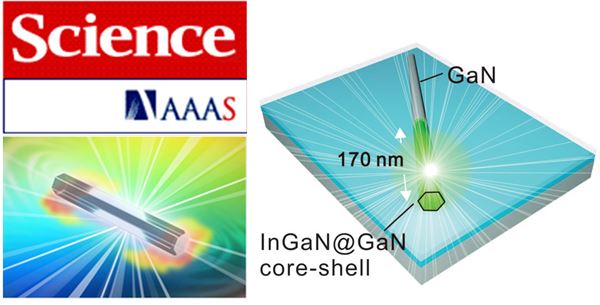- NEWS
NEWS
2013.01.01
Plasmonic Nanolaser Using Epitaxially Grown Silver Film
Science, vol. 337 no. 6093 pp. 450-453 (2012)
Yu-Jung Lu1, Jisun Kim2, Hung-Ying Chen, Chihhui Wu, Nima Dabidian, Charlotte E. Sanders, Chun-Yuan Wang, Ming-Yen Lu, Bo-Hong Li, Xianggang Qiu, Wen-Hao Chang, Lih-Juann Chen, Gennady Shvets, Chih-Kang Shih, Shangjr Gwo

A nanolaser is a key component for on-chip optical communications and computing systems. Here, we report on the low-threshold, continuous-wave operation of a subdiffraction nanolaser based on surface plasmon amplification by stimulated emission of radiation. The plasmonic nanocavity is formed between an atomically smooth epitaxial silver film and a single optically pumped nanorod consisting of an epitaxial gallium nitride shell and an indium gallium nitride core acting as gain medium. The atomic smoothness of the metallic film is crucial for reducing the modal volume and plasmonic losses. Bimodal lasing with similar pumping thresholds was experimentally observed, and polarization properties of the two modes were used to unambiguously identify them with theoretically predicted modes. The all-epitaxial approach opens a scalable platform for low-loss, active nanoplasmonics.